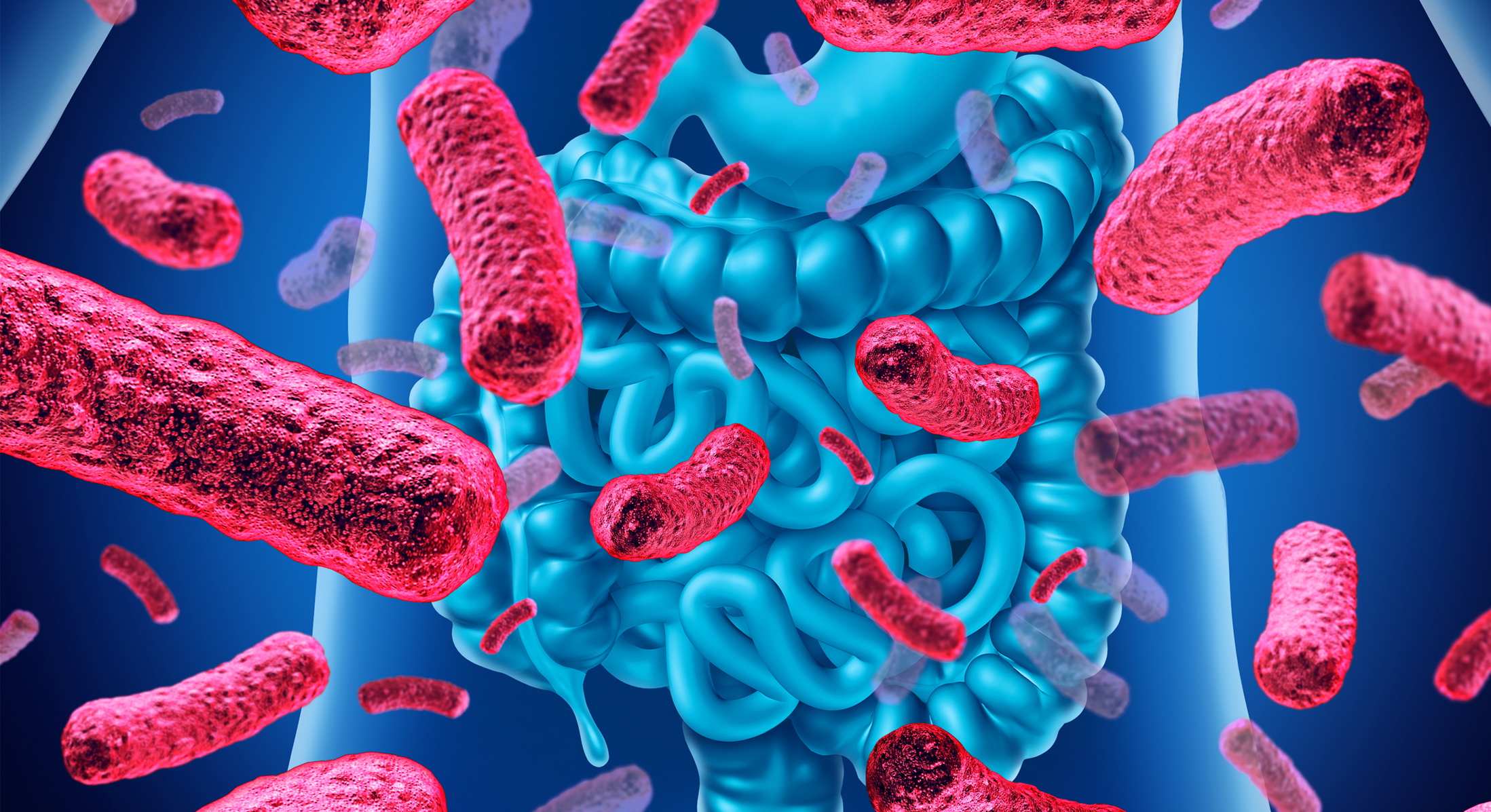
If you have been a patient of mine for any length of time, you will most likely have heard me talk about the gut microbiome and how important it is to being healthy. The gut microbiome is comprised of all the microorganisms, bacteria, fungi, viruses, protozoa and genetic material in the gastrointestinal tract. The gut microbiome plays an important role in nutrient and mineral absorption, the production of short-chain fatty acids and the synthesis of vitamins, enzymes and amino acids. Also, the byproducts produced in the gastrointestinal tract are the basis of our immune system.
The gut microbiome is affected by the foods we eat, the environment we live in, medications we take, our age, exposure to stress and other chronic diseases that we may have. Dysbiosis is described as the alteration in the microbial community that results in decreased diversity and numbers of bacteria. And for anybody who has ever experienced severe stress or anxiety, you know how quickly dysbiosis can occur. So here are some things you should know about the gut microbiome and some ways you can improve it.
Prebiotics and probiotics work together to maintain an happy and healthy gut microbiome. Prebiotics are the non-digestible components of food that help feed the friendly gut bacteria. Probiotics are microorganisms that form the gut microbiota. Prebiotics include apples, asparagus, bananas, broccoli, cauliflower, legumes, wheat and oats. Probiotics include fermented foods like sauerkraut, kimchi, kombucha and miso. Other gut health foods, especially for promoting a healthy gut lining, include pumpkin, sweet potatoes, squash and nuts.
Antioxidants are another important component in building a healthy gut microbiome. Most fruits, vegetables and herbs contain antioxidants like vitamin C, vitamin E, lutein, beta-carotene, flavanoids and lycopene. Foods that are antioxidant rich include blueberries, broccoli, oranges, kiwi, spinach, kale, onions, turmeric, ginger, garlic, dark chocolate and green tea.
These three components can create a very healthy gut microbiome and the basis for a strong immune system. There is one thing missing though…zinc. Zinc is a very important mineral that is crucial for a healthy immune system. Zinc, however, does have a sweet spot with regards to supplementation and going over the recommended daily amount can actually be detrimental to the immune system. The best sources of zinc are legumes, lentils and cereals.
To keep the gut microbiome and the immune system happy and healthy, stress should be minimal. Increased levels of stress cause cortisol to spike in the body and this lowers the immune system. Also, drinking at least half your body weight in ounces of water per day, will greatly improve your immune system.
Lastly, do your best to avoid antibiotics. We all need antibiotics at some point in our lives, but their effect on the gut microbiome can be devastating. Studies show that just one round of antibiotics can disrupt the gut microbiome for up to a year, depending on your diet. Antibiotics kill off infections, as well as the good bacteria in your gut. For this reason, it is important to make sure your diet contains lots of pre- and probiotics after you finish a round of antibiotics. https://mbio.asm.org/content/mbio/6/6/e01693-15.full.pdf
As you can see, building and maintaining a healthy immune system begins in the gut. So the foods you eat can either heal your body or create disease. The choice is yours. Fresh, local, organic, whole fruits, vegetables, seeds, nuts and grains are the best options to maintain your immune system throughout the year. If you follow these guidelines, your immune system will be able to support you no matter what is thrown at it.

April is National Stress Awareness Month (for those who didn’t know) and I hope that despite the uncertainty of things right now, everybody is making time to handle their stress. There are many different ways to handle stress and lower cortisol levels.
One way is meditation. It doesn’t have to be hours of meditation either. As few as 10 minutes can lower cortisol levels and calm your body and mind.
https://www.sciencedaily.com/releases/2018/04/180423135048.htm
Another way to deal with stress is through exercise. If you’re a gym rat, that may be difficult. But it doesn’t have to be. There are plenty of ways to exercise at home that don’t require any equipment (think jumping jacks, crunches, squats, etc.).
https://www.ncbi.nlm.nih.gov/pmc/articles/PMC3894304/
Cuddling your pets is another great way to decrease stress. Studies have shown that petting an animal actually lowers cortisol levels while decreasing blood pressure and heart rate. By the way, hugging animals is my favorite way to decrease stress.
https://www.ncbi.nlm.nih.gov/pmc/articles/PMC3408111/
In this time of social distancing, hugging others is frowned upon. But you can still hug a tree. Yup. You read that correctly. Be a Hippie Tree Hugger like me. But seriously, there is some science behind this. When you hug a tree, you are energetically connecting with the planet. All living things are made of energy. And even though you can’t hug your best friend or your great grandma, you can still get an energetic boost from a neighboring tree.
https://theconversation.com/hug-a-tree-the-evidence-shows-it-really-will-make-you-feel-better-21924
If you’re a little shy or weirded out by hugging a tree, maybe spending time in nature or shinrin yoku is a better option. Shinrin yoku is the Japanese term for forest bathing and doctors actually prescribe this for patients in Japan. Once again, studies show that being in nature is good for your health and well being. So maybe it’s time to go for a walk in the trees, while you have more down time than normal.
Regardless of what method you prefer, incorporating stress awareness and resolution into your daily routine is something I highly recommend.

